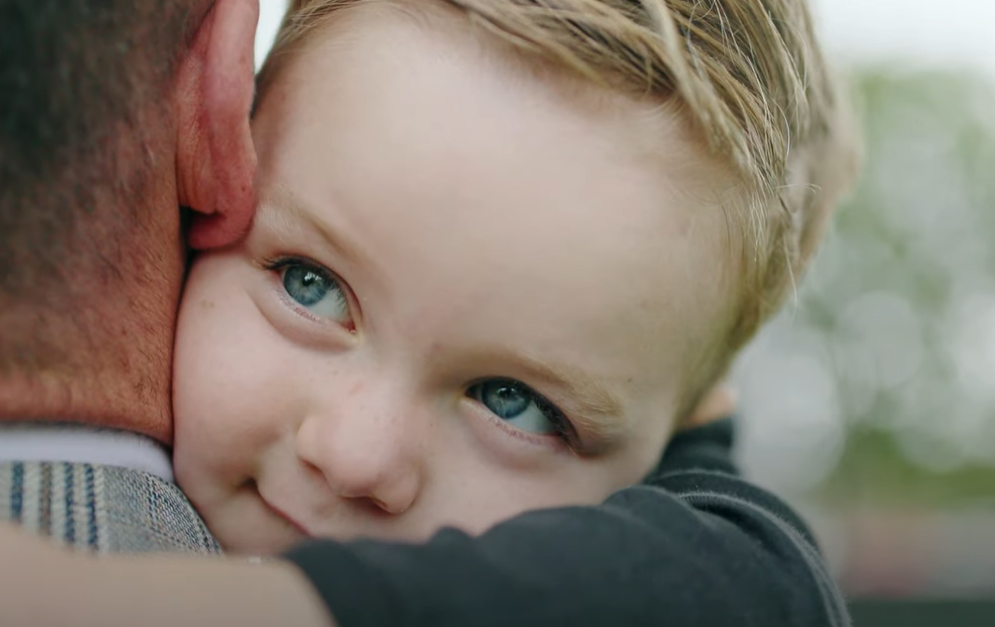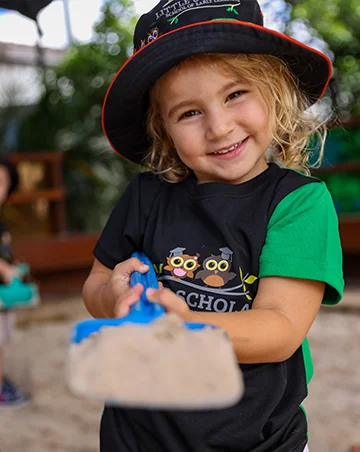While it feels increasingly common, when the news cycle often brings unsettling stories into our homes, it can be tough for parents to find the right approach to discuss such events with their young ones, or even know if they should. Here we share some thoughtful strategies to help you navigate these challenging conversations, ensuring you, and your little ones, feel secure and supported.
How to navigate this news with the family can depend heavily on the age and maturity of the members.
During a time in which the news may make us feel defeated and deflated, or fearful and stressed, we hope we can support parents in addressing global events sensitively and thoughtfully, especially important given that young children are always looking and listening.
Limit exposure
Young children’s exposure to news should be limited, according to experts. This can be done by turning off the TV during news broadcasts and restricting children’s access to your social media channels to shield them from disturbing images. It’s also advisable to limit discussions about frightening events around young children, saving such conversations for after they’ve gone to bed. While some exposures may be unavoidable, these steps help protect your little ones from unnecessary distress.
Stay attuned to child’s mood
For small children, they may not be able to verbalise their feelings, so in times of stress, or if you think your child may know what’s going on in the news, be attuned to any changes in mood or behaviour. These changes in your child could include:
- Becoming more withdrawn
- Reluctance to go out
- Asking lots of questions
- Acting out aggressively
- Having sleep issues
- Changes in appetite
Understanding your child’s awareness of current events
Start by gauging what your little ones already know about a current event. For school-age children, inquire about their knowledge from school or social media. It’s important to consider the developmental stage of your child, as younger ones may struggle to distinguish fact from fantasy, typically gaining this ability around the ages of seven or eight years.
If your child shows disinterest or reluctance to discuss the event, respect their feelings and try avoid repeatedly pressing them further, but remind them you’re always there to listen or even just when they need to cuddle.
Responding to concerns with care
Be present for your child and prepared for questions. When addressing questions from children, it’s important to be honest yet selective about the details you share. Aim to alleviate fears and provide reassurance to your little ones because you’re their safe place. Listen attentively to their concerns, especially after distressing news events. Address any fears about personal safety by being present during this time and don’t dismiss your children’s fears and concerns.
It’s perfectly acceptable to admit if you don’t know an answer; take it as an opportunity to explore the answer together using age-appropriate resources.
Meanwhile, keep monitoring what your child is watching and limit repeated exposure to potentially distressing news, as the repeated exposure during these 24-hour news cycles can drive a child to dwell on what they’ve seen and heard.
Focus on the positive
Some adults may remember American children’s TV star from the 1970s and 80s Fred Rogers, who once shared advice that still could be applied today. He said, “When I was a boy and I would see scary things in the news, my mother would say to me, ‘look for the helpers. You will always find people who are helping.’” If children hear about a car accident, talk about the brave bystanders and paramedics who quickly arrive on the scene. If they hear about war abroad, you could about all the ways people come together to help those in need – providing aid, opening their homes, and raising money. This could and should segue into a conversation about how as a family you could help people who’ve experienced adversity or traumatic situations, like a house fire or homelessness.
Adjust your language and approach
Appropriate age-language is important here, because young brains just aren’t developed enough to understand some of the harsh realities of the human experience. Even something simple like using the verb ‘hurt’ rather than killed, murdered, stabbed, etc all of which are verbs that could scar young children.
Sarah Bergman, a psychotherapist with Counselling on the Coast, says parents should also be aware of their own conversations, actions and moods, because children can be very attuned to their parents. She agrees that if parents are noticing changes in their children, they should provide a little extra care and attention, but says they should mindful of giving over-the-top anxious attention as this can further little ones’ worries.
“It may just be that parents provide more presence to their little ones at this time, allowing opportunities for anything that needs to emerge and it may just be a little bit longer snuggle at bedtime, where they integrate a felt sense of warmth and safety, that all is ok in their little worlds with mum and dad as their protector,” Sarah suggests.
Finally, if you’re concerned about your child, this is a conversation to have with early childhood educators and your Little Scholars campus manager. We’re on your family’s team, so please tell them about any behavioural changes you’ve noticed, what you’ve done at home and what your wishes are for while they’re in childcare.
Our educators have been trained in trauma response and can even offer insight into your child or suggestions on how to further navigate the difficult feelings they may be experiencing.
Sources:
Disasters, the media and your child



